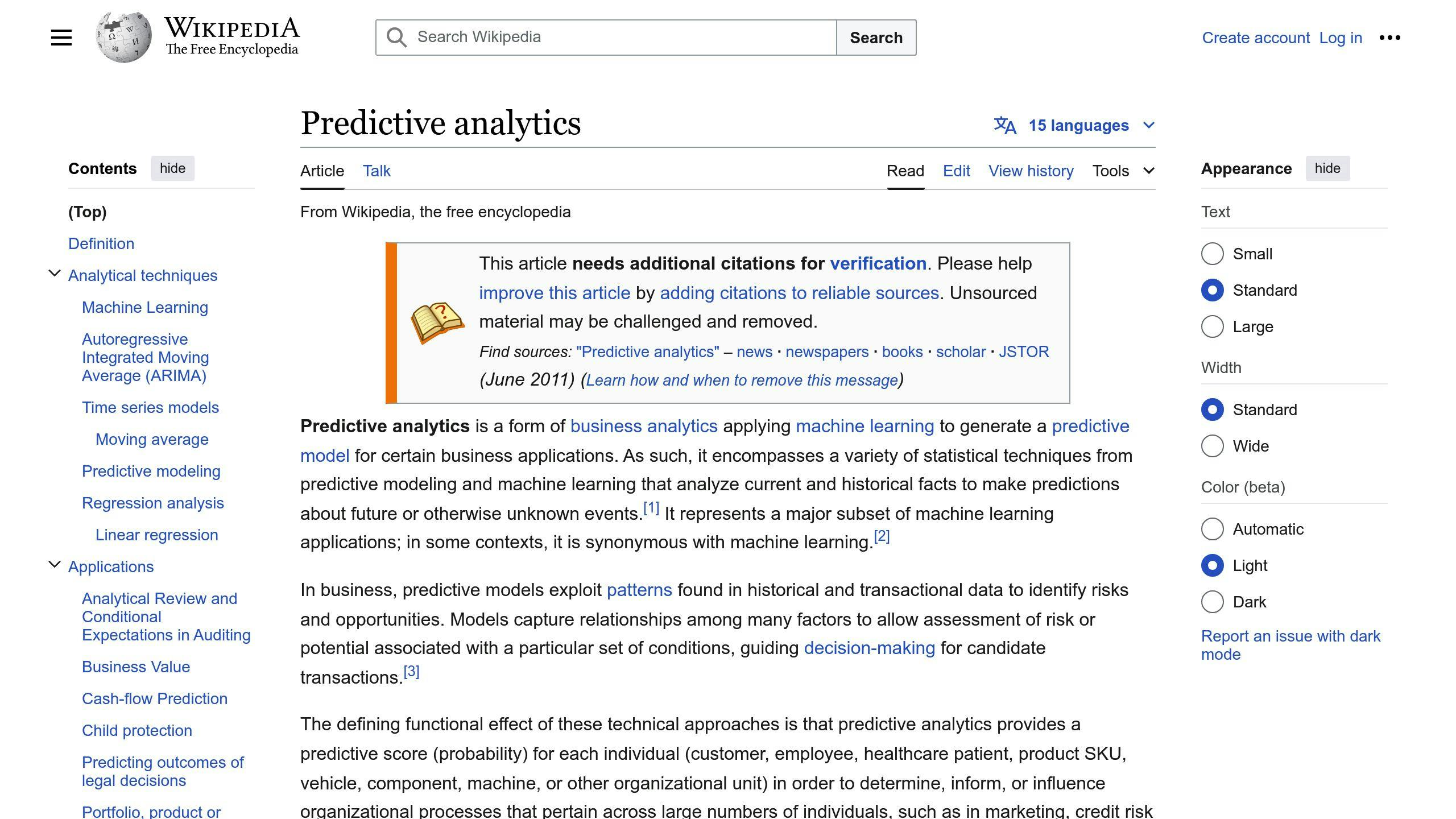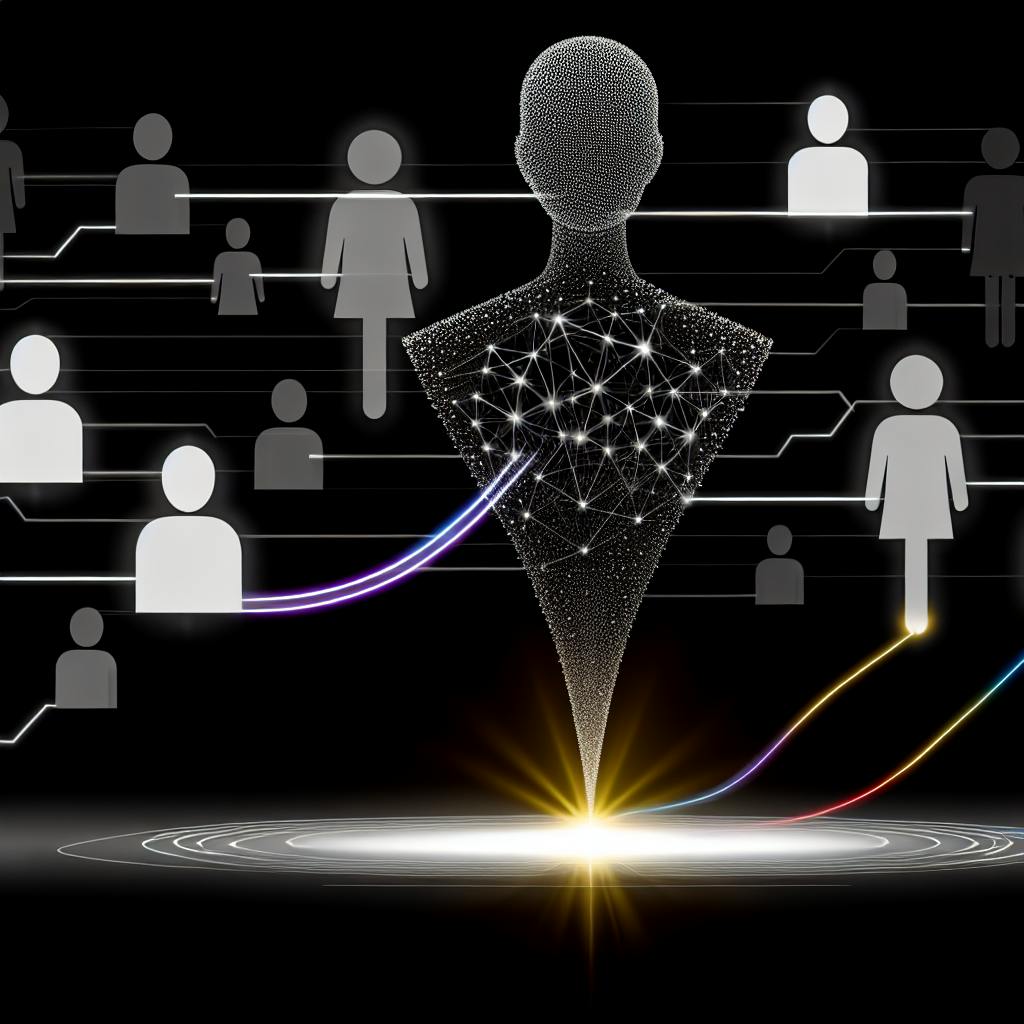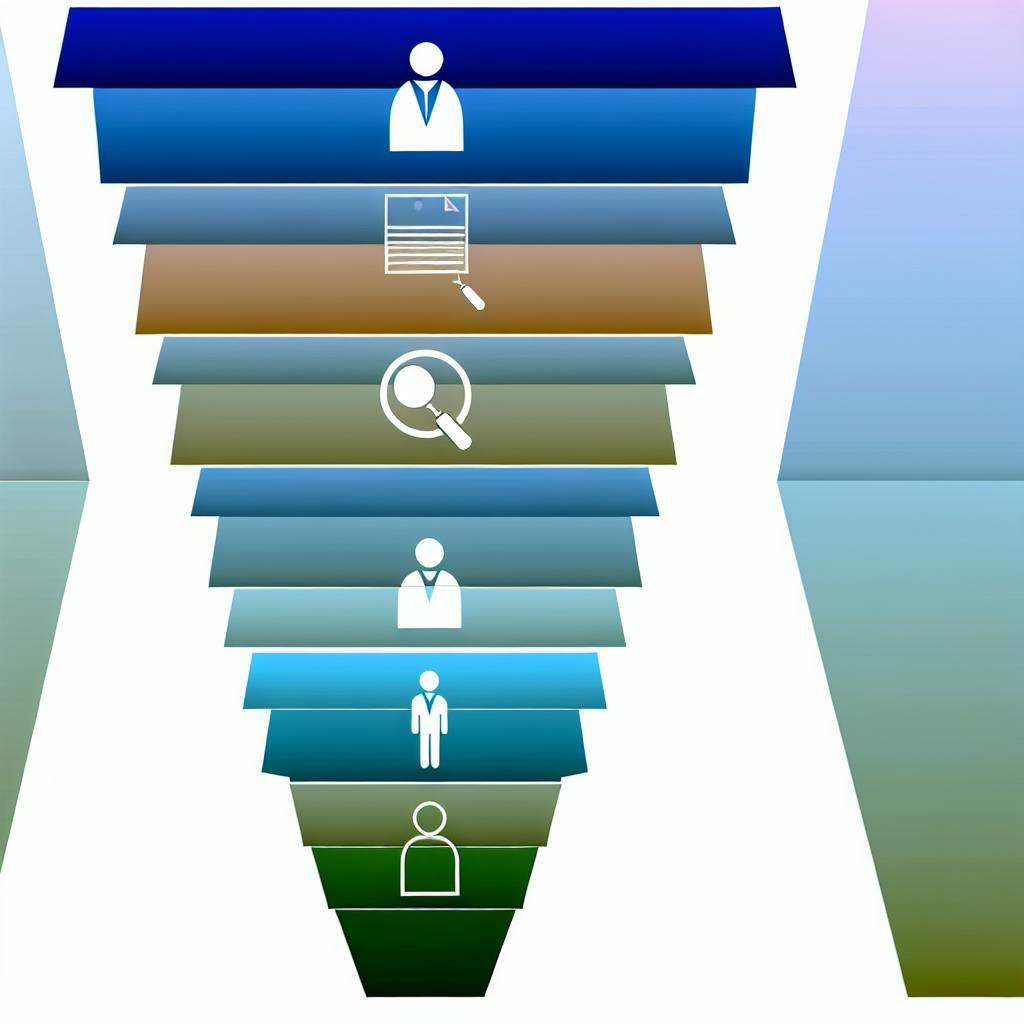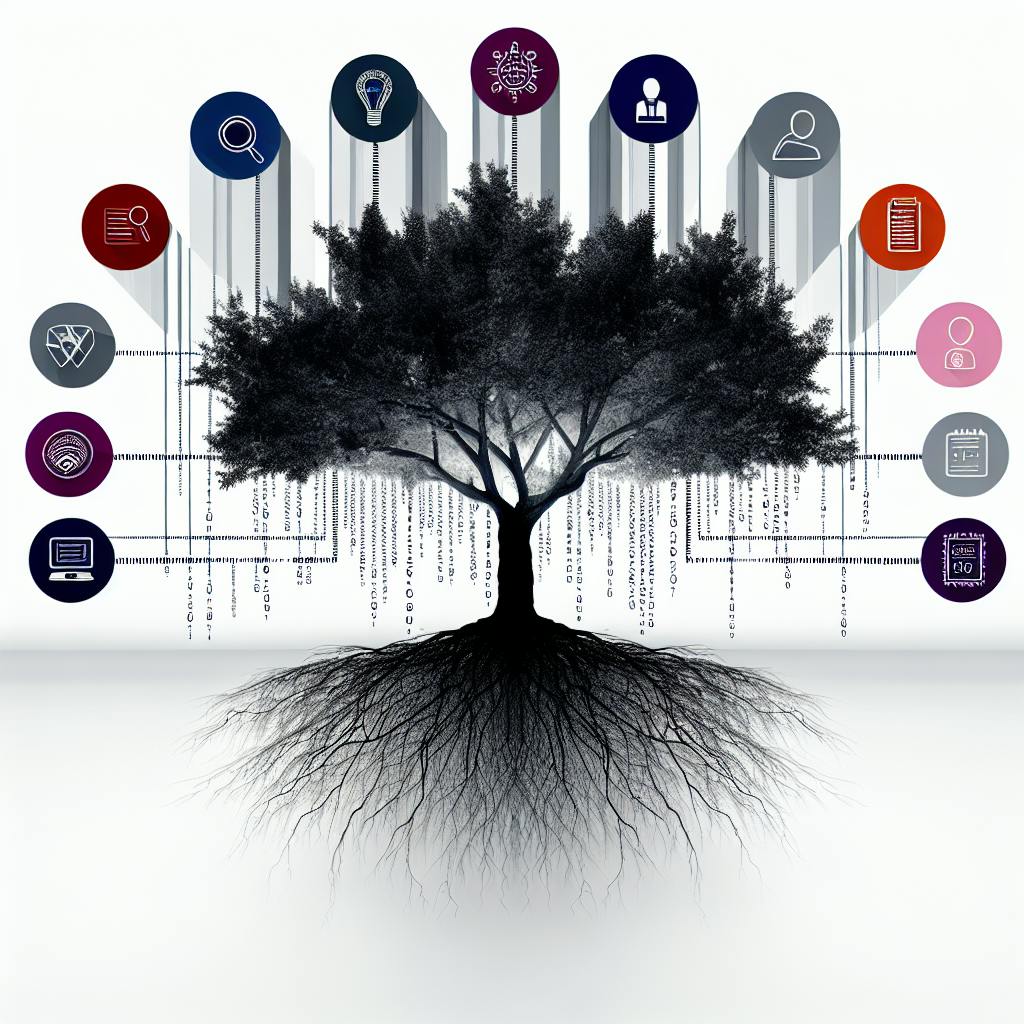AI is transforming talent acquisition by streamlining the hiring process, reducing bias, and improving candidate experience. Here are the key benefits and considerations:
Benefits of AI in Hiring
-
Automated Resume Screening: AI algorithms quickly analyze resumes to identify top candidates based on predefined criteria, saving time and reducing bias.
-
AI-Driven Candidate Engagement: Chatbots and virtual assistants provide personalized and interactive experiences for candidates, improving communication and reducing dropout rates.
-
Advanced Diversity and Inclusion: AI helps remove bias from job descriptions and identifies existing biases in the recruitment process, promoting diversity and inclusion.
-
Predictive Analytics: AI analyzes data to identify patterns and trends, enabling informed hiring decisions and improving the quality of hires.
Limitations and Ethical Concerns
-
Understanding Nuances: AI lacks emotional intelligence and human intuition to fully understand the nuances of human behavior and communication.
-
Maintaining Personal Touch: Overreliance on AI tools can lead to a depersonalized recruitment process, eroding the human touch essential for building relationships and trust with candidates.
Balancing AI and Human Expertise
-
AI’s Role: Initial screening, scheduling, data analysis, and candidate matching.
-
Human Recruiters’ Role: Building relationships, evaluating soft skills, assessing cultural fit, and making final hiring decisions.
| AI Benefits | Human Advantages |
|---|---|
| Automated screening | Evaluating emotional intelligence |
| Personalized engagement | Assessing cultural fit |
| Diversity and inclusion | Building meaningful connections |
| Predictive analytics | Final hiring decisions |
Related video from YouTube
Issues with Traditional Hiring Methods
Traditional hiring methods have been the norm for decades, but they are plagued by inefficiencies, biases, and time-consuming processes. These limitations can lead to poor hiring outcomes, affecting the overall performance of an organization.
Inefficiency and Time Consumption
Traditional hiring methods involve manual processes, such as reviewing resumes, conducting interviews, and verifying candidate information. These tasks can be time-consuming and prone to errors, taking up valuable resources that could be better utilized elsewhere.
Biases in Traditional Hiring
Human biases can significantly impact the hiring process, leading to unfair treatment of candidates. Biases can influence hiring decisions, resulting in the selection of less qualified candidates.
Limited Reach and Diversity
Traditional hiring methods often rely on local job postings, job fairs, and internal referrals, limiting the reach and diversity of the candidate pool. This can result in a lack of diverse perspectives, skills, and experiences, ultimately affecting the organization’s performance and innovation.
High Costs and Low ROI
Traditional hiring methods can be costly, with expenses including job posting fees, agency commissions, and training costs. However, the return on investment (ROI) is often low, as the quality of hires may not meet expectations.
| Limitations of Traditional Hiring | Impact on Organization |
|---|---|
| Inefficiency and Time Consumption | Poor hiring outcomes, wasted resources |
| Biases in Traditional Hiring | Unfair treatment of candidates, poor hiring decisions |
| Limited Reach and Diversity | Lack of diverse perspectives, skills, and experiences |
| High Costs and Low ROI | Low-quality hires, wasted budget |
The limitations of traditional hiring methods highlight the need for a more efficient, data-driven, and bias-free approach to talent acquisition. AI-powered tools can help address these issues, enabling organizations to streamline their hiring processes, reduce biases, and improve hiring outcomes.
New AI Tools for Recruitment in 2024

The recruitment landscape is changing rapidly, driven by advancements in Artificial Intelligence (AI) technologies. In 2024, AI-powered tools are transforming the way organizations approach talent acquisition, making the process more efficient, data-driven, and fair.
Automated Resume Screening
AI algorithms can quickly and accurately analyze resumes, identifying top candidates based on predefined criteria such as education, skills, and experience. This saves recruiters time and reduces the risk of human bias in the initial screening process.
AI-driven Candidate Engagement
AI-powered chatbots and virtual assistants are transforming candidate engagement. These tools provide personalized and interactive experiences for candidates, improving communication and reducing the risk of candidate dropout.
Advanced Diversity and Inclusion Initiatives
AI-powered recruitment tools are driving diversity and inclusion initiatives. By analyzing job descriptions and removing bias language, AI algorithms help organizations attract a more diverse pool of candidates. Additionally, AI-powered tools identify and counteract existing biases in the recruitment process, ensuring a fair and equitable selection process for all candidates.
Predictive Analytics for Hiring Decisions

AI-powered predictive analytics plays a critical role in hiring decisions. By analyzing large datasets, AI algorithms identify patterns and trends, enabling organizations to make informed decisions about candidate selection. This improves the quality of hires and reduces the risk of bad hires, saving organizations time and resources.
| AI-Powered Recruitment Tools | Benefits |
|---|---|
| Automated Resume Screening | Time savings, reduced bias |
| AI-driven Candidate Engagement | Personalized experience, improved communication |
| Advanced Diversity and Inclusion Initiatives | Fair and equitable selection process |
| Predictive Analytics for Hiring Decisions | Informed decisions, improved quality of hires |
AI for Efficient and Data-Driven Hiring
AI-powered recruitment tools are transforming the hiring process, making it more efficient, data-driven, and fair. By automating repetitive tasks and providing predictive analytics, AI is revolutionizing the way organizations approach talent acquisition.
Automating Recruitment Tasks
AI algorithms can quickly and accurately:
-
Analyze resumes and identify top candidates
-
Automate tedious tasks such as scheduling interviews and sending follow-up emails
This saves recruiters time and reduces the risk of human bias in the initial screening process. With AI-powered tools, recruiters can focus on strategic aspects of their role, such as building relationships with candidates and making informed hiring decisions.
Using Analytics for Hiring Decisions
AI-powered predictive analytics plays a critical role in hiring decisions. By analyzing large datasets, AI algorithms identify patterns and trends, enabling organizations to make informed decisions about candidate selection. This improves the quality of hires and reduces the risk of bad hires, saving organizations time and resources.
| Benefits of AI-Powered Analytics | Description |
|---|---|
| Improved quality of hires | Better fit for the role and organization |
| Reduced risk of bad hires | Saves time and resources |
| Informed hiring decisions | Data-driven approach to candidate selection |
Improving Candidate Experience with AI
The hiring process can be frustrating and time-consuming for candidates. However, with AI-powered tools, organizations can revolutionize the candidate experience, making it more personalized, efficient, and engaging.
Personalized Candidate Communications
AI-driven chatbots can facilitate timely and personalized interactions with candidates, providing them with instant responses to their queries and concerns. This not only saves recruiters time but also ensures that candidates receive the attention they deserve, leading to a more positive perception of the company.
| Benefits of AI-Driven Chatbots | Description |
|---|---|
| Timely responses | Candidates receive instant answers to their queries |
| Personalized interactions | Candidates feel valued and understood |
| Time savings | Recruiters can focus on more strategic tasks |
Streamlining the Application Process
AI can also streamline the application process, making it easier and more convenient for candidates to apply. With AI-powered self-scheduling tools, candidates can schedule interviews and assessments at their convenience, eliminating the need for back-and-forth communication with recruiters.
| Benefits of AI-Powered Self-Scheduling | Description |
|---|---|
| Convenience | Candidates can schedule interviews at their convenience |
| Time savings | Recruiters can focus on more strategic tasks |
| Improved candidate experience | Candidates feel more in control of the application process |
sbb-itb-32d91a1
The Human Role in AI Recruitment
While AI offers numerous advantages in streamlining the recruitment process, it’s essential to acknowledge the irreplaceable human elements that AI cannot replicate. Emotional intelligence, cultural fit assessment, and fostering meaningful connections are crucial aspects that require human expertise and judgment.
Assessing Emotional Intelligence and Soft Skills
Human recruiters excel at evaluating a candidate’s emotional intelligence and soft skills, such as communication, teamwork, and leadership abilities. These qualities are challenging for AI algorithms to assess accurately.
| Human Advantage | Description |
|---|---|
| Reading body language | Interpreting non-verbal cues |
| Evaluating emotional intelligence | Assessing a candidate’s self-awareness and empathy |
| Evaluating soft skills | Assessing communication, teamwork, and leadership abilities |
Determining Cultural Fit
Human recruiters are better equipped to evaluate whether a candidate’s values, personality, and work style align with the organization’s culture. This cultural fit assessment is crucial for ensuring long-term success and minimizing turnover.
Building Meaningful Connections
The recruitment process is the first step in establishing a relationship between the candidate and the company. Human recruiters can create a personal connection, build trust, and provide a positive experience that leaves a lasting impression on candidates.
While AI can significantly enhance the efficiency and objectivity of the recruitment process, human expertise remains indispensable. By combining the power of AI with the human touch, organizations can create a comprehensive and effective recruitment strategy that attracts the best candidates and fosters a positive company culture.
Combining AI and Human Expertise in Hiring
Combining AI and human expertise in hiring is crucial for achieving a balanced and effective recruitment process. While AI offers numerous benefits, such as efficiency and accuracy, human recruiters bring emotional intelligence, cultural fit assessment, and meaningful connections to the table.
Integrating AI with Personal Interactions
To strike the right balance, recruiters can use AI to enhance, not replace, personal interactions with candidates. AI can automate initial screening, scheduling, and data analysis, freeing up human recruiters to focus on building relationships and assessing cultural fit.
| AI’s Role | Human Recruiters’ Role |
|---|---|
| Automate initial screening | Evaluate emotional intelligence and soft skills |
| Schedule interviews | Assess cultural fit |
| Analyze data | Build relationships with candidates |
Ensuring Fair and Diverse Hiring with AI
Human oversight is essential in maintaining ethical standards and diversity in AI-driven recruitment. While AI can help reduce bias, it is not immune to perpetuating existing biases if not properly trained and monitored.
| Best Practices | Description |
|---|---|
| Implement diverse interview panels | Ensure diverse perspectives in the hiring process |
| Use blind hiring practices | Remove identifiable information to reduce bias |
| Regularly review AI algorithms | Monitor for bias and ensure fairness |
Limitations and Ethical Concerns of AI Hiring
While AI has transformed the recruitment process, it’s essential to acknowledge its limitations and potential ethical concerns. These limitations can impact the effectiveness and fairness of AI-driven hiring.
AI’s Limitations in Understanding Nuances
AI algorithms lack the emotional intelligence and human intuition to fully understand the nuances of human behavior and communication. This limitation can lead to misinterpretation of candidate responses, overlooking qualified candidates, or prioritizing those who are more tech-savvy.
Mitigating this limitation:
| Action | Description |
|---|---|
| Human review | Review AI-generated shortlists and assess candidates based on emotional intelligence, soft skills, and cultural fit. |
Maintaining a Personal Hiring Process
The increasing reliance on AI tools can lead to a depersonalized recruitment process, potentially eroding the human touch that’s essential for building relationships and trust with candidates. To avoid this, recruiters should strike a balance between AI-driven efficiency and personalized interactions.
Striking a balance:
| Action | Description |
|---|---|
| AI for initial screening | Use AI for initial screening and data analysis. |
| Human interactions | Reserve human interactions for more in-depth assessments and relationship-building. |
Remember, AI is meant to augment, not replace, human judgment and expertise in recruitment. By acknowledging AI’s limitations and ethical concerns, recruiters can create a more effective, fair, and personalized hiring process.
Reducing Bias in AI Recruitment
Reducing bias in AI recruitment is crucial to ensure fair and inclusive hiring practices. AI-powered tools can help minimize bias, but it’s essential to take proactive measures to prevent discrimination and unfair treatment of candidates.
Using Unbiased Data
The data used to train AI algorithms plays a significant role in shaping the recruitment process. To reduce bias, it’s essential to use diverse and unbiased data that reflects the real-world demographics of the target talent pool.
| Data Requirements | Description |
|---|---|
| Diverse data | Reflects real-world demographics of the target talent pool |
| Unbiased data | Free from stereotypes, prejudices, and cultural biases |
Human Oversight
While AI algorithms can process vast amounts of data quickly and efficiently, they are not immune to bias. Human review of AI hiring decisions is essential to uphold ethical hiring standards and prevent discrimination.
| Human Oversight | Description |
|---|---|
| Review AI-generated shortlists | Identify and correct biases in AI-driven decisions |
| Ensure fair and inclusive hiring | Uphold ethical hiring standards and prevent discrimination |
Balancing AI and Human Expertise in Hiring
Combining AI and human judgment is crucial for an effective hiring process. While AI can automate tasks and analyze data, human recruiters bring empathy and nuanced decision-making to the table.
Roles and Responsibilities
To achieve a balance, it’s essential to define clear roles for AI and human recruiters:
| Role | Responsibilities |
|---|---|
| AI | Initial screenings, data analysis, candidate matching |
| Human Recruiters | Building relationships, evaluating soft skills, making final hiring decisions |
Collaboration for Success
By working together, AI and human recruiters can create a hiring process that is both efficient and empathetic. This collaboration ensures that candidates are treated with dignity and respect, leading to better outcomes for both candidates and employers.
The key to successful AI adoption in hiring lies in recognizing the limitations of technology and the importance of human oversight.




